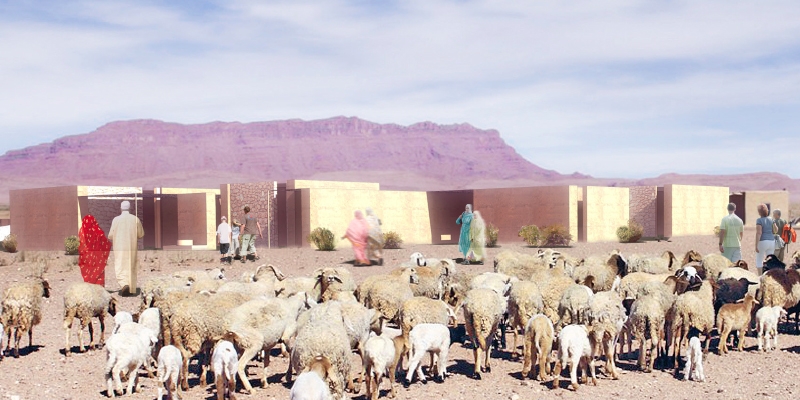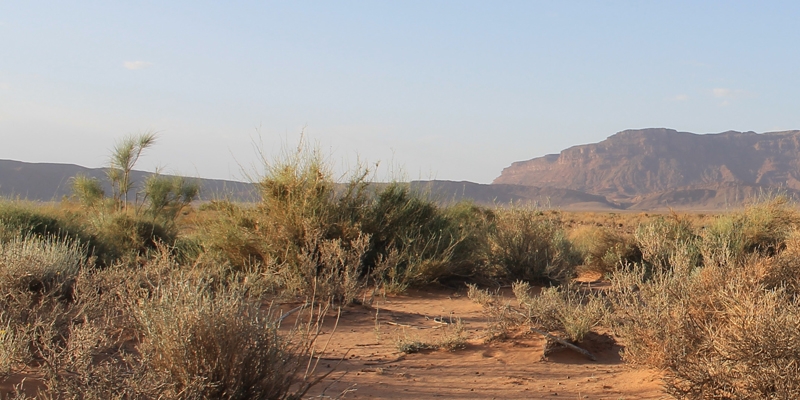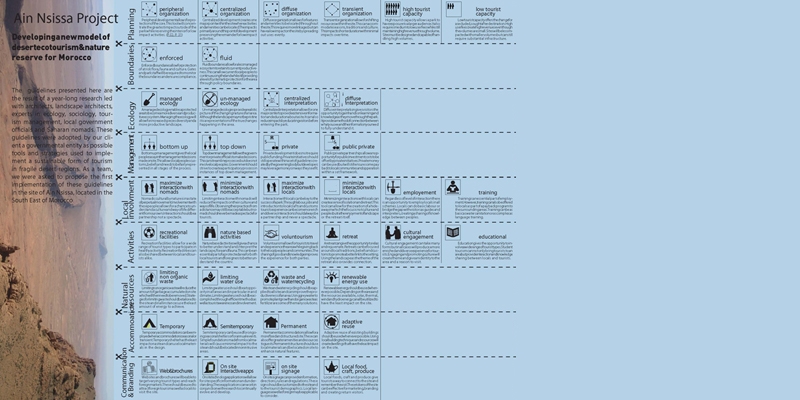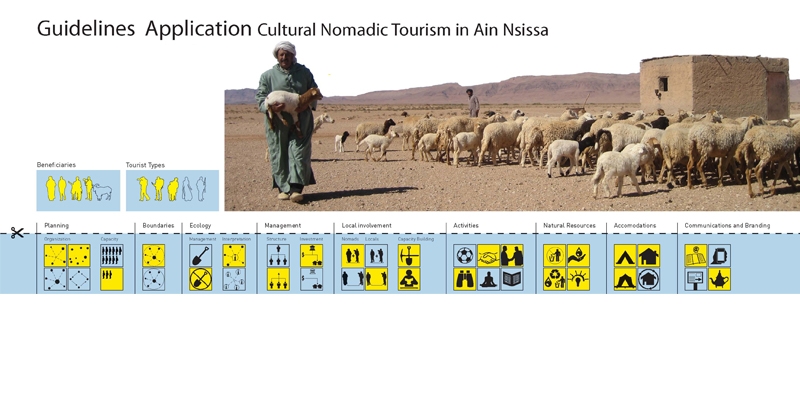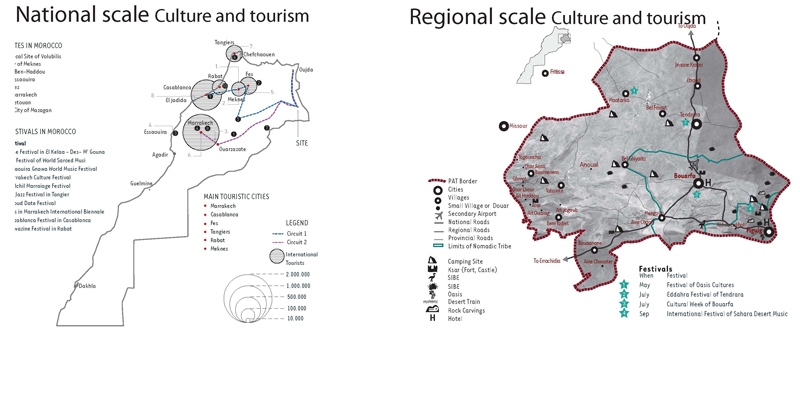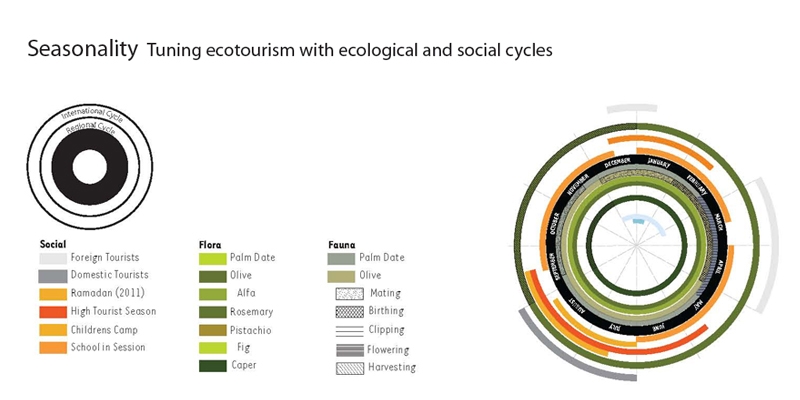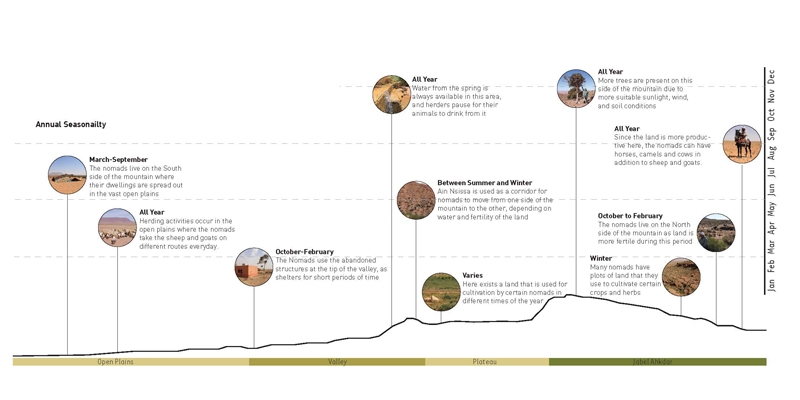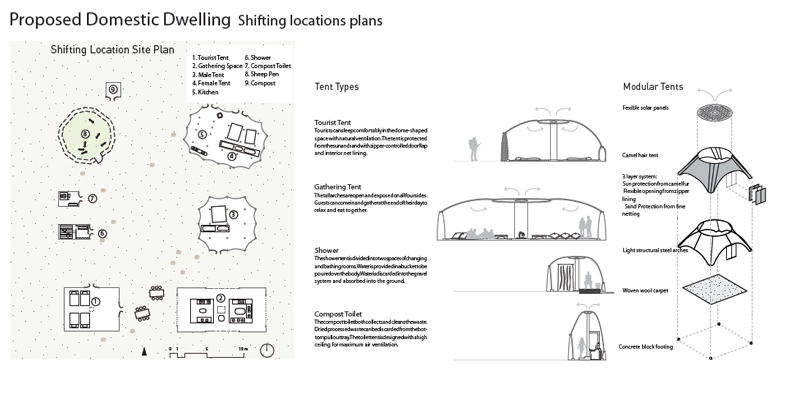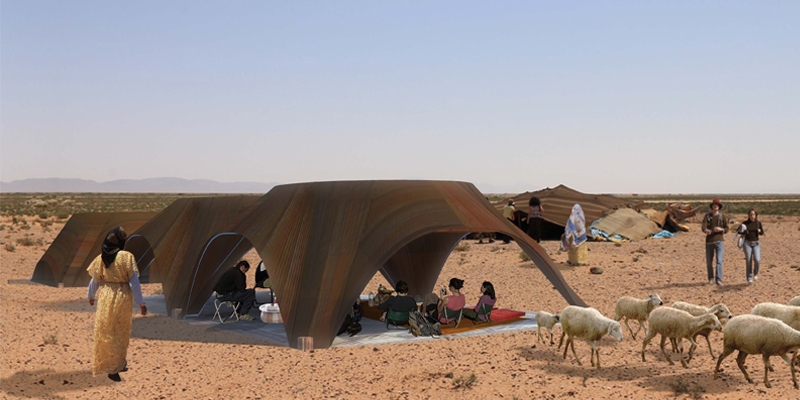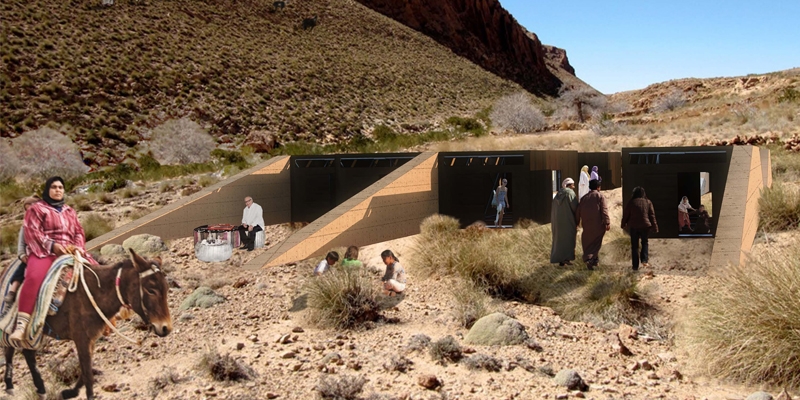AIN NSISSA PROTECTED AREA: 3 SCENARIOS FOR DESERT ECOTOURISM DEVELOPMENT
The Ain Nsissa project is a collaborative applied research which tests a model for desert eco-tourism that promotes low impact construction while improving environmental and socio-economic living conditions of local nomads, the Beni Guil.
The project departed from the findings of a year-long graduate seminar that investigated ecotourism models in arid climates, their sustainable architecture and nature conservation strategies. Professor Georges Farhat co-taught the seminar.
Collaborators included local governmental agencies (Bouarfa Municipality, Ministry of the Environment and Ministry of Agriculture), ISIIT, a Moroccan school of Tourism Management, the Beni Guil tribe and experts from our University in ecology, sociology and tourism planning. Students and experts visited the site twice and led field research including interviews, surveying the site fauna and flora, and sharing daily life with the Beni Guil nomadic tribe.
Its herds weakened by several draughts, this tribe was indeed wishing to develop a sustainable form of tourism but did not know of a model that will at the same time highlight and preserve their hybrid lifestyle composed of both traditional and modern needs. The field summer research led to an active dialogue between students, collaborating faculty and local stakeholders through a series of meetings and workshops. As a result, a scenario emerged that includes:
• a management plan that insures the economic sustainability of the project.
• a plan to create a nature reserve in the mountains of Ain Nsissa, the home of the Mouflon.
• a master plan composed of a heterotopic network of nomads wiling to house tourists.
• typologies of housing upgrades and new buildings for the three different types of Nomadic lifestyles (shifting, semi-shifting and fixed.)
Based on our research, the Ministry of Tourism extracted guidelines for the future development of tourism in desert regions.
SELECTED PROJECT:
INTEGRATING NOMADIC LIFE WITH ECOTOURISM, BY AZIZA CHAOUNI, UTAKO TANEBE, SAMAR ZARIFA, AMANDA CHONG


